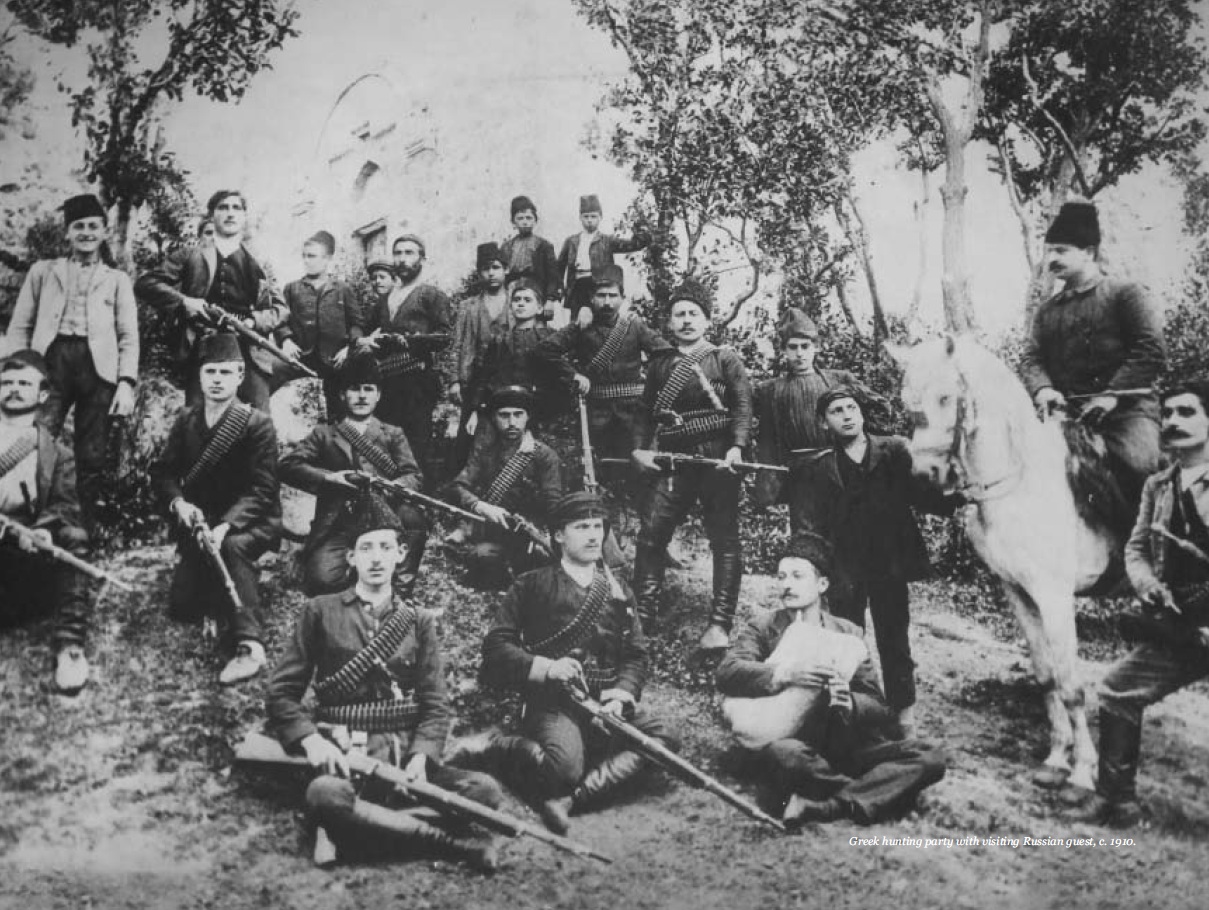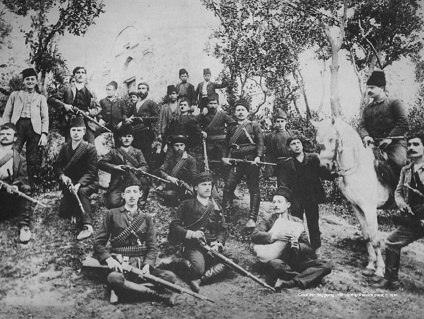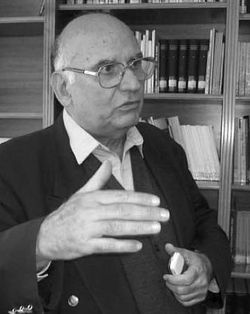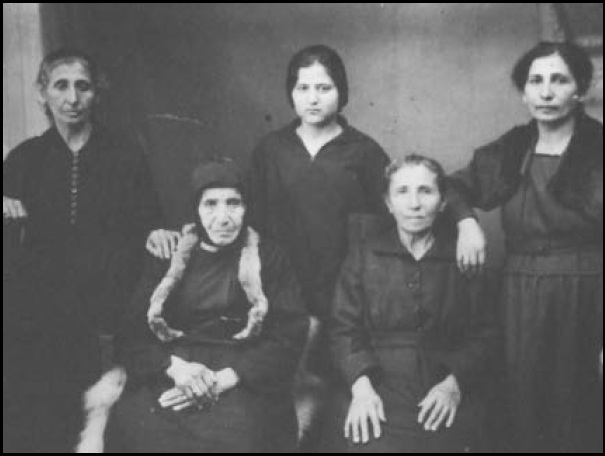
THE STORY OF THOSE WHO SECRETLY BELIEVED IN OTHER RELIGIONS
There is a film from 2010 called "Yüreğine Sor" (Ask Your Heart). The film, which tells a love story blossoming in the Eastern Black Sea region, is commendable in terms of locations, costumes, and casting, but the script is disappointing. The girl is Muslim, but the boy is a “krifos”, that is, a secret Christian. When this is revealed, the lovers realize they cannot be together, and the film ends tragically.
As in previous Turkish series like “Yabancı Damat”, “Sıla”, and “Elveda Rumeli”, it laments the separation of lovers due to religious differences. The message is given to both Muslims and Christians as if they had the power: “Religions are the same, don’t separate lovers!” However, it is not traditions but the Qur'an that forbids a Muslim girl from marrying a non-Muslim man. How could even the entire world change this? While wealth, lineage, education, and age are seen as obstacles to marriage, how realistic is it to downplay religious differences? Moreover, the fact that the problem would be solved if the boy became Muslim is conveniently overlooked.
The scene in the film where a village girl says, “Even the sultans have Christian wives” is laughable. The girls taken to the palace were raised as devout Muslims, and those who didn’t comply were removed. There has never been even a Christian concubine, let alone a sultan’s wife. It is lamentable how out of touch the educated are with their own culture and yet presume to teach society.

“Uzun Sokak Çamur Oldi, Krumilar Gavur Oldi” (The Long Street Became Muddy, the Krumis Became Infidels)
Contrary to common belief, the reason for secretly believing in another religion was not oppression. In his book “Gizli Din Taşıyanlar” (Those Who Secretly Believed in Other Religions), which inspired the film, Yorgo Andreadis clearly states the reason: personal gain. Some Greek villagers living in the mountainous region of Kromni (Kurumlu, Kromlu) between Trabzon and Gümüşhane around 1650 (two centuries after the conquest) pretended to be Muslims in order to obtain mining privileges. Since mines were strategically important at that time, the administration did not grant privileges to non-Muslims.
These people secretly baptized their children, married only among themselves, and buried their dead in Muslim cemeteries according to Christian rites. To avoid attracting attention, they lived a closed life. There weren’t mosques in every village. In villages with mosques, they attended prayers, fasted, and also kept their own Christian fasts. Their priests served as imams, and there were hidden chapels under their homes.
Over time, the mines lost importance, and the advantage of appearing Muslim disappeared. Furthermore, military service became mandatory. If they now claimed to be Christians, Islam forbids apostasy and punishes it with death. When the Russians occupied the region in 1828, they seized the opportunity.
The Turks mocked them by saying, “The long street became muddy, the Krumis became infidels.” But the joy of the Krumis, who revealed their true identity, was short-lived. When the Russians withdrew, they fled to Russia to avoid the inevitable fate. Andreadis himself descends from these people.


There were others who secretly believed in other religions for advantages in Macedonia, Cyprus, Crete, Lebanon, and Egypt. When England and Russia noticed this, they incited them to reveal themselves during the period of freedom following the Tanzimat reforms in XIX. century. They also pressured the Ottoman government. The government resisted. Ultimately, these people migrated to Russia and other countries. Some of them, who said, “We were always Greek, so we didn’t apostatize,” were allowed to practice Orthodoxy. Some, who either did not dare or did not see the need, became fully Muslim. The number of secret Christians in Kromni in the mid-19th century was a few thousand.
The Laramans
Among the Catholic Albanians, there was a group that pretended to be Muslim to avoid certain taxes. The people called them Laraman (dyed, colored). The Laraman, mostly living in the regions of Peja (Ipek) and Kosovo, would take Muslim names for the men, but the women and children continued in their original religion.
Starting from 1837, they began to openly return to Christianity. In 1844, when two Albanian Laraman refused military service because they were actually Christians, the incident escalated. The government appointed officials to investigate the situation and tried to convince them. Those who remained unconvinced were fined, and 160 people who could not pay were exiled to places like Skopje (Üsküp) and Mihalich (Bursa). Over time, the incident faded, and their return to their original religion was tolerated.
On July 15, 1857, 44 people applied to the British Embassy in Istanbul to announce that they were secret Christians and to inform the European states of their situation. The British ambassador concluded that they were opportunists.
Osman Pasha’s Muslims?
Pontus is the Greek name for the Black Sea. When Trabzon was conquered, a population of Greek-Iranian origin lived there. After the conquest, the leading Greeks emigrated to Russia by ship. Some of those who remained migrated to other parts of Anatolia, while others became Muslim. Turks also settled in the region. In the mountainous areas of Tonya, Çaykara, Maçka, and Torul, there are still sincere Muslims who speak Greek. If you say to them, “Your ancestors were Greek,” they will draw their weapons on you.
Many Muslims who knew no language other than Greek from Crete, Albania, and Thessaly came to Anatolia during the population exchange. There is no doubt about their sincerity. Secretly believing in another religion was primarily for obtaining advantages such as gaining privileges that only Muslims had, avoiding paying the jizya tax for non-Muslims, and evading the devshirme (recruiting of boys to army and bureaucracy). There could be no such thing as hiding one’s religion in the Ottoman State out of fear of oppression.
Islam commands that when a place is conquered, the non-Muslims living there be granted citizenship. Those who do not wish to remain are free to emigrate. It forbids the forced conversion of people to Islam. This was not financially desirable either. However, some in Trabzon claimed that they were forcibly converted to Islam by a local lord and were thus called “Osman Pasha’s Muslims.” The truth of this claim is uncertain.
The concept of hidden religion finds its true meaning more in Europe and Japan. During the conquest of Andalusia, the Spanish forced the Muslims and Jews living there to choose between baptism and the sword. Some were baptized outwardly but continued to practice their religion in secret. However, this only lasted a few generations, and eventually, they all became true Christians. Secretly believing in another religion is not easy. How did those in the Ottoman Empire manage it? Islam values outward appearances. It forbids investigating people’s intentions and lives. Someone who appears to be Muslim is accepted as a Muslim. The Ottomans did not interfere with those who did not threaten the social and state order, no matter what they believed or how they lived.
Önceki Yazılar
-
THE OTTOMAN DYNASTY AND QURAYSH9.07.2025
-
"WOE TO THE ENEMIES OF THE REVOLUTION!" What Was The People’s Reaction To The Kemalist Revolutions?2.07.2025
-
DEATH IS CERTAIN, INHERITANCE IS LAWFUL!25.06.2025
-
THE SECRET OF THE OTTOMAN COAT OF ARMS18.06.2025
-
OMAR KHAYYAM: A POET OF WINE OR THE PRIDE OF SCIENCE?11.06.2025
-
CRYPTO JEWS IN TURKEY4.06.2025
-
A FALSE MESSIAH IN ANATOLIA28.05.2025
-
WAS SHAH ISMAIL A TURK?21.05.2025
-
THE COMMON PASSWORD OF MUSLIMS14.05.2025
-
WERE THE OTTOMANS ILLITERATE?7.05.2025